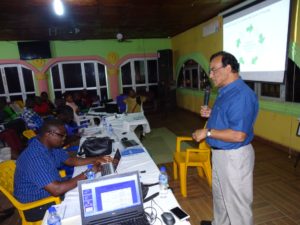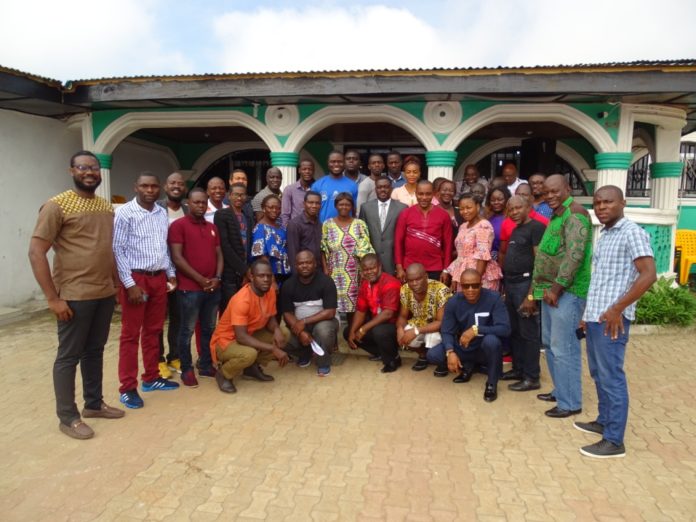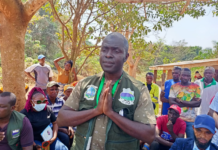Technicians and experts from line Government of agencies are locked have begun brainstorming in Ganta, Nimba to develop a national monitoring and evaluation (M&E) system and a climate finance tracking system.
According to a release the system when developed would enable the monitoring of climate change intervention and the tracking of climate change finance in Liberia.
The development of the national monitoring and evaluation (M&E) system and the climate finance tracking system is being done under the auspices of the National Adaptation Projects (NAPs).
United Nations Development Program (UNDP) through the NAPs Project funded by the Green Climate Fund (GCF) has been supporting the work of the Government of Liberia to advance its medium term investment planning processes with a view of better tackling the impact of climate change.
An international consultant has been hired by UNDP through the NAPs Project to support the development of the national monitoring and evaluation (M&E) system and the climate finance tracking system.
The consultant would be working with the Environmental Protection Agency of Liberia (EPA) and the Ministry of Finance and Development Planning (MFDP) in the realization of system.
NAPs Project Manager, Abraham T. Tumbey said there exist opportunities to mobilize resources for the financing of climate change interventions in the country but noted that such opportunities can better be harnessed in a more transparent and accountable environment.
“The achievement of accountability and transparency are supported by a strong M&E and finance tracking system that that would provide the data information or statistics to demonstrate what funding has come in, how it has been used and what impact it has made,” Tumbey.
According to him, the tracking of climate finance is one of the best practices to promote and support climate finance resource mobilization, as it showcases transparency, accountability, as well as helps to identify gaps in climate resource envelope.
Speaking further, Tumbey disclosed that the establishment of a national M&E and climate finance tracking systems for climate change interventions requires the involvement and support of a cross section of actors in diverse sectors involved with climate change interventions.
“These stakeholders must be engaged to establish a common understanding on what such systems mean, how they would be created or strengthened, and how they would work,” Tumbey explained.
According to him, the contributions and support of these stakeholders are also very cardinal in the process, and are required to provide inputs into the process in order to achieve and sustain the objective of developing or strengthening such systems.

For these stakeholders and technicians to contribute to the process in a meaningful and informed manner, they need to clearly understand the technical details.
At the two day forum, which stated on Thursday 5 December 2019 in Ganta, technical details about the systems would be discussed and primary data gathered to inform and guide the process.
The forum would also help improve the understanding of key stakeholders and technicians on the national M&E and climate finance tracking system to facilitate the establishment of an effective and functional system for the tracking of climate finance and the monitoring of climate change interventions in the country.
The gathering also seeks to identify and discuss common criteria for determining climate finance; identify and discuss common criteria for determining adaptation and mitigation interventions and finances; and to determine and agreed on a suitable software and kinds of platforms for the monitoring of climate change intervention and the tracking of climate finance.























